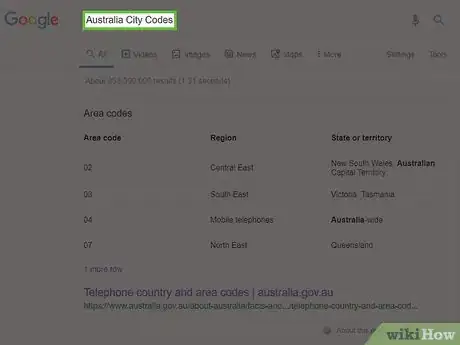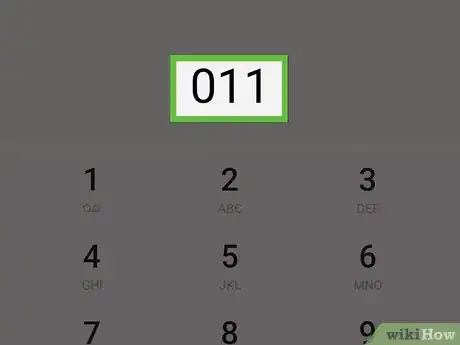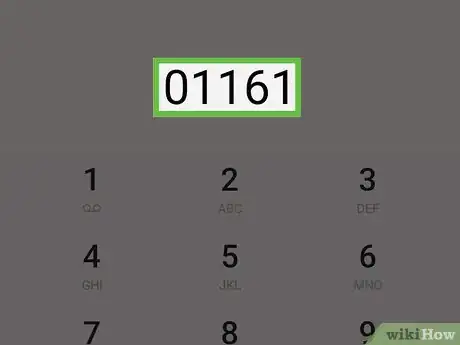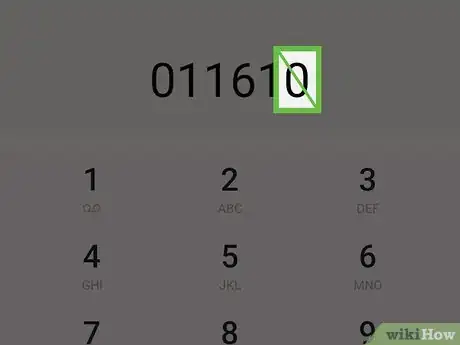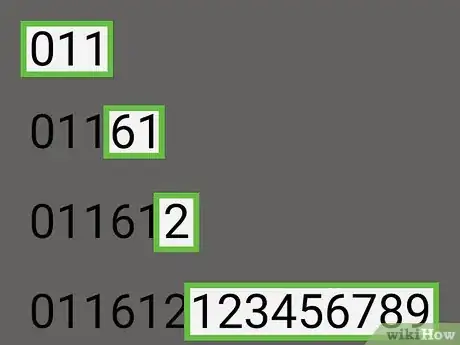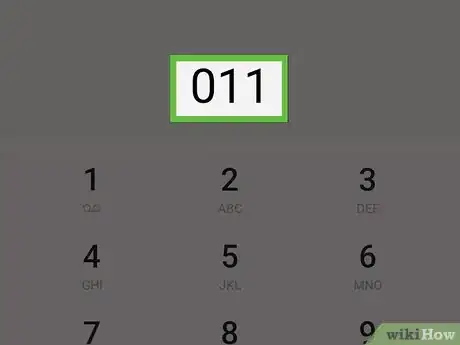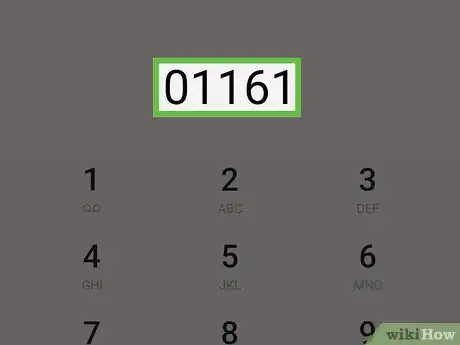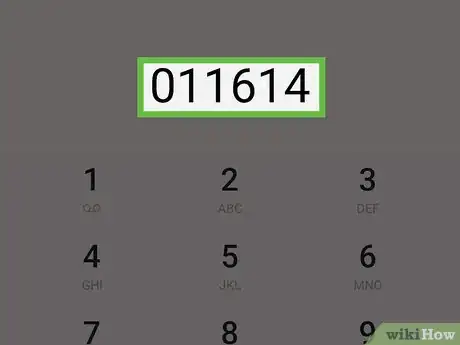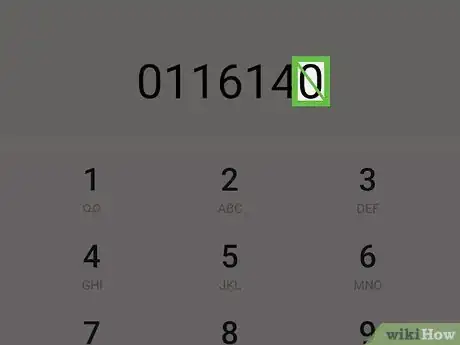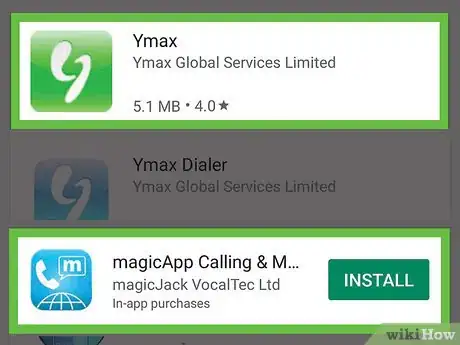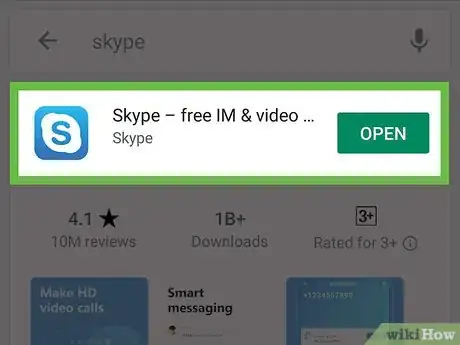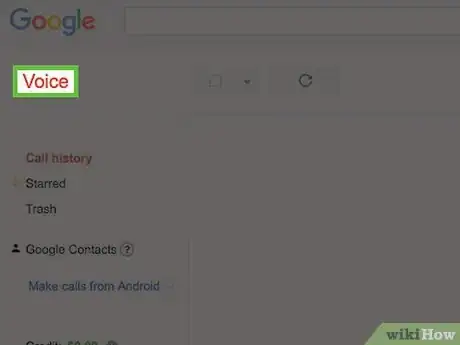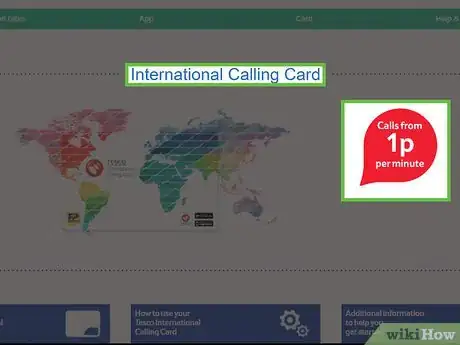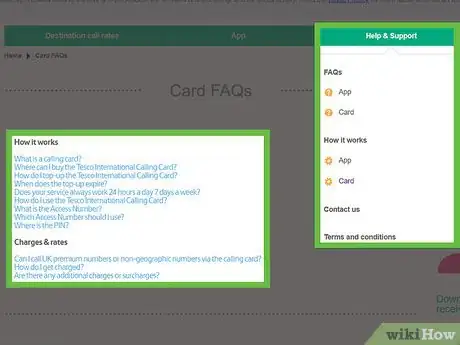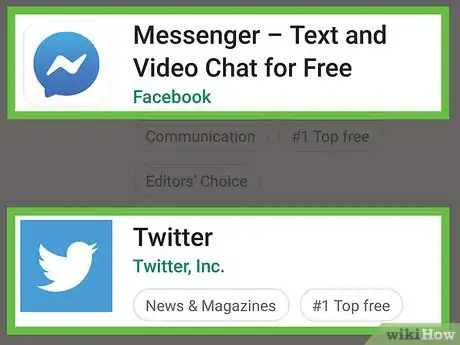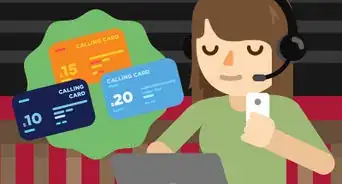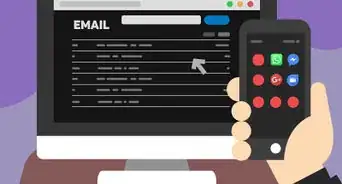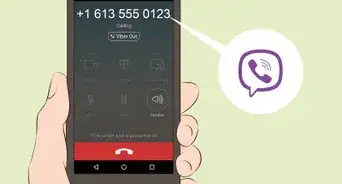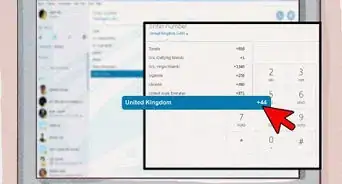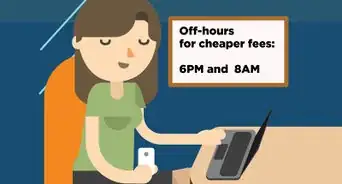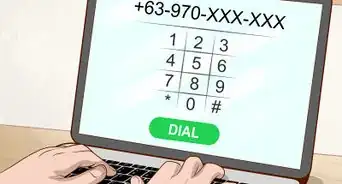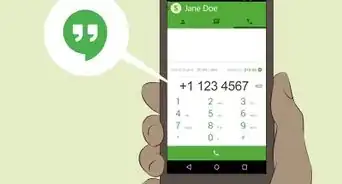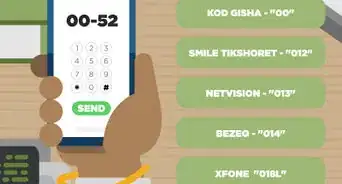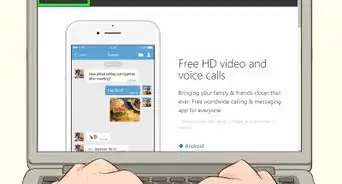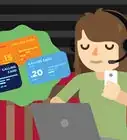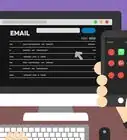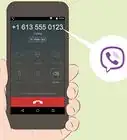This article was co-authored by wikiHow Staff. Our trained team of editors and researchers validate articles for accuracy and comprehensiveness. wikiHow's Content Management Team carefully monitors the work from our editorial staff to ensure that each article is backed by trusted research and meets our high quality standards.
This article has been viewed 112,430 times.
Learn more...
Calling someone in Australia from the U.S. may seem like a challenge, but it is actually rather easy to do if you use the proper codes. If you dial carefully, you will be chatting with someone in Australia in no time.
Steps
Calling a Landline in Australia
-
1Locate the city code of the city you are calling. In Australia, each city has an individual city code. You will need to dial the area code during the calling process. You should be able to locate the area online with a simple Google search.[1]
- For example, Melbourne's city code is 3. Sydney's city code is 2.
-
2Dial the international exit code. Jot down the area code and begin your call. To start, you will need to dial the international exit code for the United States. This is a number that signals your call is going outside of the United States or Canada. The number is "011." Dial "011" to begin the call.[2]Advertisement
-
3Dial the country code for Australia. For international calls, each country has its own code to direct the call. The Australian country code is 61. Dial "61" to direct your call to Australia.[3]
-
4Leave out the zero. In Australia, a "0" at the beginning of a number is known as the "trunk code." Trunk codes are codes used for national calls that must be dialed prior to dialing the number. They are unnecessary for international calls. If a phone number begins with a 0, ignore it and dial the rest of the number.[4] [5]
-
5Dial the number. From here, you will dial the number you wish to reach. Include the city code first, and then dial the number. In Australia, phone numbers are 9 digits.[6]
- To review, say you're calling Sydney. To make a call to a landline phone, you would dial 011-61, then 2, followed by the 9 digit phone number.
Calling a Cell Phone in Australia
-
1Dial the international exit code for the USA. The process of calling a cellphone is highly similar to the process of calling a landline phone. You would again start by dialing the international exit code for the US, which is 011.[7]
-
2Dial the country code. From there, dial Australia's country code. This signals the call should be directed to Australia. The country code for Australia is "61."[8]
-
3Dial the number four. The number "4" indicates you are calling a cellphone. You need to dial the number "4" if the number you're trying to reach is not a landline.[9]
-
4Dial the mobile phone number. From here, you can dial the phone number. As with a landline, ignore the number "0" before a phone number. This is a trunk code, which is only necessary for national calls.[10]
- To review, to call a cell phone in Australia you would dial "011-61-4" followed by the cell phone number.
Calling Over the Internet
-
1Go for a cheap subscription service. There are many online calling services you can install that only cost a small subscription. These services may be cheaper and easier than making international phone calls, and may be worth the money if you must frequently phone Australia.[11]
- Many of these services require a small attachment for your computer. YMax magicJack, for example, comes with a small attachment that must be plugged into a laptop's USB port.
- Usually, you must purchase the software for a fee. Some fees are as low as $40, while others are as high as $250. Once you purchase the software, however, rates are fairly low. Some services only have a yearly subscription fee, which can be as low as $320.
-
2Use something free, like Skype. Skype is free, as long as you sign up for an account, and can easily be used to make international calls. As long as the party you're trying to reach has Skype, this can be a free alternative to calling. Also, you will need to make sure your computer has speakers and a microphone. Many computers have these things built in.[12]
- Log into Skype, click on "contacts," and then double click the party you wish to call.
- There are two icons, one of which looks like a phone. You should press this button, which will allow you to make a voice call.
- Skype also allows you to call multiple people at once if you need to do something like a conference call for work.
-
3Try a Google voice account. Google voice is free to use, but international calls do cost money. However, rates tend to be much cheaper than they are for international calls, and adding credit to your account is fairly simple. You just log into your Google voice account, and click "Calling credit" and add credit if necessary.[13]
- You can make an international call by clicking "call" on your Google voice account. You would then enter the number as you would normally enter an international number, including things like the calling code.
- Keep time in mind, as Google calls are not free. While rates are cheaper, you still to make sure you do not let the call go on too long.
Managing the Cost of Calls
-
1Buy an international calling card. International calls can get expensive, especially if you have to make them frequently. You can save some money by investing in an international calling card online or from your phone provider.[14]
- With a calling card, you pre-pay for the minutes. This can stop you from receiving high fees as you'll have to make sure you do not let calls run too long.
- However, read calling card contracts closely. Some have a variety of hidden fees, and you can rack up extra fees fast. You do not want to end up spending the same amount, or more, on a calling card.
-
2Scrutinize international calling plans carefully before signing up. If you need to make calls to Australia frequently, an international calling plan can help. Your service provider may offer a discount or specialized plan, depending on your services.[15]
- A country specific calling plan is best. If your calling plan assures you can make calls only to Australia, it may not cost as much as a general international calling plan. If you only make calls to Australia, you will not need to pay for other services.
- As with a calling card, be wary of hidden fees. Read any contract you sign closely and scan it for any fees that look suspicious or extravagant.
-
3Consider alternatives to calling. If calling is getting expensive, look into alternatives. There are other ways to communicate besides over the phone.
- Use social media to your advantage. Add international friends to social media accounts and communicate with them via things like Facebook and Twitter.
- You can also email. You can agree to email back and forth with a friend to update him or her on your life. This can be a free way to stay in touch with a long distance friend.
Warnings
- Be sure to calculate the time in Australia before you place your call to avoid calling at an anti-social hour. The time zone in Australia is UTC/GMT +10 hours.⧼thumbs_response⧽
References
- ↑ http://www.howtocallabroad.com/australia/
- ↑ http://www.howtocallabroad.com/australia/
- ↑ http://www.howtocallabroad.com/australia/
- ↑ http://www.howtocallabroad.com/qa/dialing-errors.html
- ↑ http://www.howtocallabroad.com/australia/
- ↑ http://www.howtocallabroad.com/australia/
- ↑ http://www.howtocallabroad.com/australia/
- ↑ http://www.howtocallabroad.com/australia/
- ↑ http://www.howtocallabroad.com/australia/
- ↑ http://www.howtocallabroad.com/australia/
- ↑ http://www.pcworld.com/article/205601/landline_phone_alternatives.html
- ↑ https://www.digitalunite.com/guides/email-skype/skype/how-make-skype-call
- ↑ https://support.google.com/voice/answer/141922?hl=en
- ↑ https://www.fcc.gov/consumers/guides/international-long-distance-calling-made-simple-tip-sheet
- ↑ https://www.fcc.gov/consumers/guides/international-long-distance-calling-made-simple-tip-sheet
About This Article
To call Australia from the USA, first dial 011, which is the international exit code for the U.S. Next, dial the country code for Australia, which is 61. Follow the exit and country codes with the city code for the area you are calling, which you can find online, or dial 4 if you are calling a cell phone. Finally, dial your party’s personal 9-digit phone number. If the person’s phone number begins with a 0, ignore this and dial the rest of the number. Read on to learn how to make your call to Australia over the internet!
